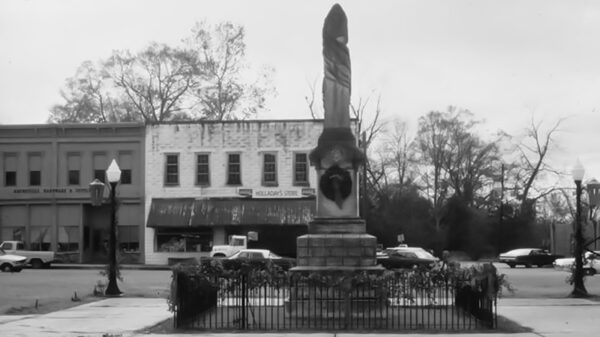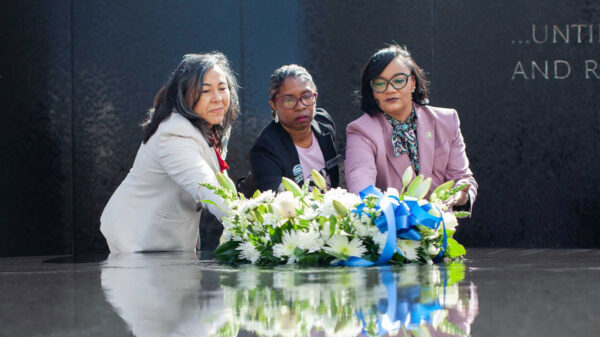|
Getting your Trinity Audio player ready...
|
If we cared at all, Reggie Jackson’s words would give us all pause.
If we wanted to be better, to do better, to lift those who have struggled for generations because of impediments placed in their way, we would consider Jackson’s words. We would be dumbstruck by the recency of his experience, and by how it still is so raw and hurtful to him.
Last Thursday, in an all-too-rare moment of reality, Jackson, a Hall-of-Famer and one of the best to ever play the game, recounted during a Fox broadcast his memories of playing minor league baseball in Alabama.
It was not a memory that our tourism department will be promoting.
“The racism when I played here, the difficulty of going through different places where we traveled,” Jackson said during a broadcast of an MLB game at Rickwood Field in Birmingham. “I walked into restaurants and they would point at me and say ‘a n***er can’t eat here.’ I would go to a hotel and they would say, ‘a n***er can’t stay here.’ People said to me today, ‘You think you’re a better person? You won when you played here and conquered.’ I said, you know, I would never want to do it again.”
Jackson said that his teammates tried to protect him, and they stuck by his side, refusing to eat at restaurants or stay in hotels where Jackson wasn’t welcomed. But the hate and discrimination – for an upstanding citizen and minor league ball player – was unending.
“Had it not been for Rollie Fingers, Johnny McNamara, Dave Duncan, Joe and Sharon Rudi, I slept on their couch 3 or 4 nights a week for about a month and a half,” Jackson said. “Finally, they were threatened that they would burn our apartment complex down unless I got out. I wouldn’t wish it on anyone.
“The year I came here, Bull Connor was the sheriff the year before, and they took minor league baseball out of here. Because in 1963, the Klan murdered four black girls, children, 11, 12, 14 years old, at a church here and (the perpetrators) never got indicted. I wouldn’t wish it on anyone. At the same time, had it not been for my White friends, had it not been for a White manager and Rudi, Fingers and Duncan and Lee Myers, I would have never made it. I was too physically violent. I was ready to physically fight some — I’d a gotten killed here because I’d a beat someone’s ass, and they’d a hung — you’d have saw me in an oak tree somewhere.”
That was Alabama just 60 years ago.
Your grandparents were alive. Hell, your parents were probably alive. It was one generation ago.
And this was life for a fantastic athlete. A person who wasn’t bothering a soul. Who wasn’t in trouble. Who wasn’t even protesting the racial injustices.
Who was just trying to live.
That was life in 1960s Alabama. And for much of the 1970s, too. After all, those “whites only” signs didn’t disappear overnight and the state turn into a racial utopia after the Civil Rights marches of the mid and late 1960s.
The average Black Alabamian owned nothing. They had received, at best, a subpar education. They were arrested routinely on trumped-up charges. They were denied basic services. They were demeaned and belittled at every turn.
It was a place that took great pride in crushing the dreams and spirits of anyone with black skin.
Which is exactly why so many people are trying so desperately now to sweep that history under a rug. To put it just out of reach of today’s young people. To focus less on the dream-crushing parts and more on the overcoming-marches part.
To make it seem like that Jim Crow of the past was a minor inconvenience that was overcome by a march across the bridge and a really dreamy speech in D.C. And everything since has just been a product of whiny Black people refusing to work, refusing the helping white hands up, refusing to take responsibility for their failures.
The reality was, and is, that for the supremely talented Black man, like Reggie Jackson, there was a narrow pathway out of poverty and hardship. For all the rest, there was resentment and closeted racism and a prison pipeline entered almost from birth.
But we don’t like to talk about it. Or admit it.
Just look at what’s happening right now in Montgomery. There are people – educated, respected people – in that city who will right now argue that Montgomery’s crime issues and education problems are caused by Black people. And they stop there. Seemingly never wondering why the color of skin would make an entire group of people more prone to poverty, or violence.
And never considering that the pathway out of the current problems is learning from the past ones. From understanding the human impact of hate. From setting aside skin color as a cause of anything and considering that almost all people, regardless of the way we look, share the same dreams and aspirations.
But mostly we could create a much better state by embracing the stories from people like Reggie Jackson. Spreading them around. Telling young people about that reality. And the reality that followed.
If we cared at all.






















































